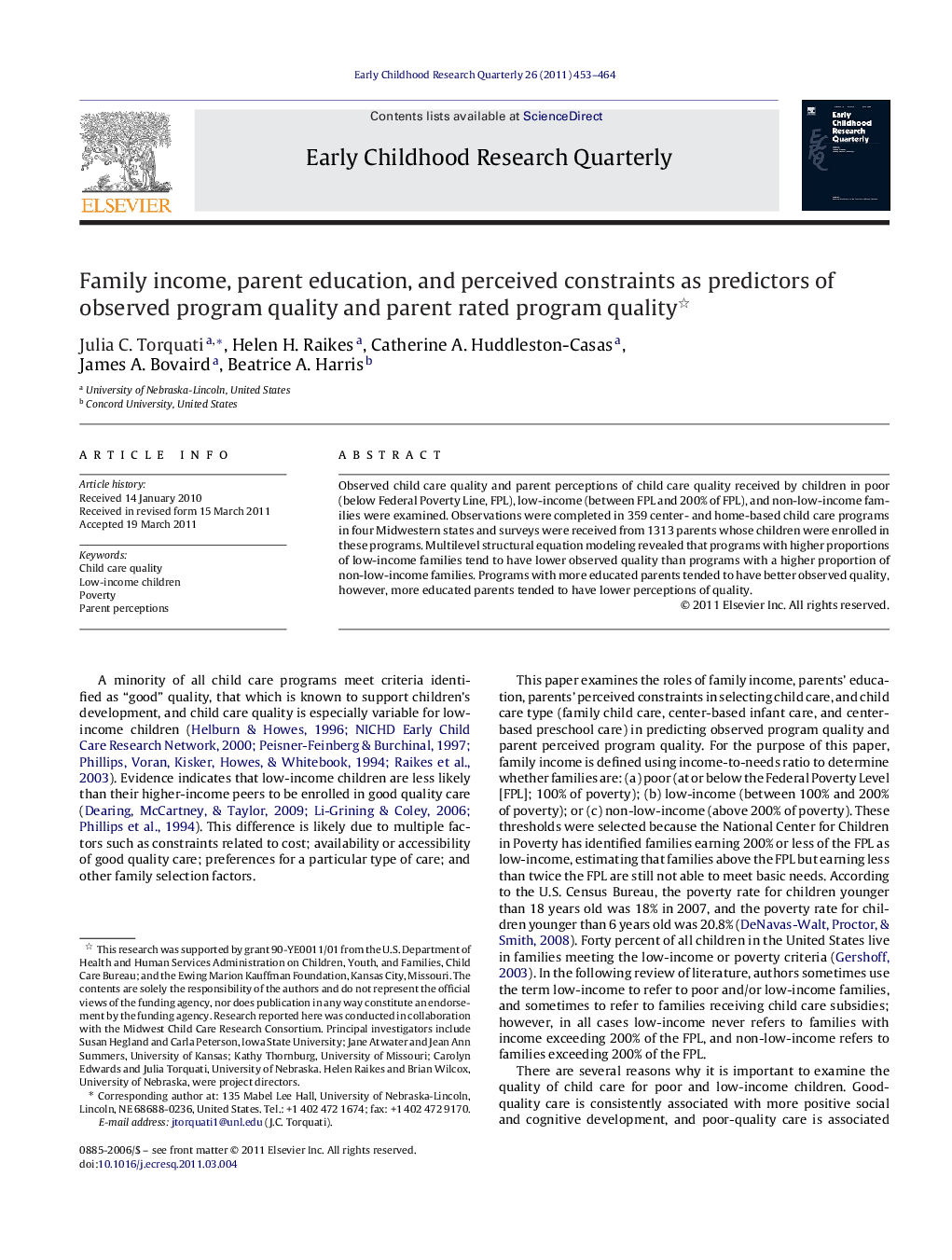| Article ID | Journal | Published Year | Pages | File Type |
|---|---|---|---|---|
| 353996 | Early Childhood Research Quarterly | 2011 | 12 Pages |
Observed child care quality and parent perceptions of child care quality received by children in poor (below Federal Poverty Line, FPL), low-income (between FPL and 200% of FPL), and non-low-income families were examined. Observations were completed in 359 center- and home-based child care programs in four Midwestern states and surveys were received from 1313 parents whose children were enrolled in these programs. Multilevel structural equation modeling revealed that programs with higher proportions of low-income families tend to have lower observed quality than programs with a higher proportion of non-low-income families. Programs with more educated parents tended to have better observed quality, however, more educated parents tended to have lower perceptions of quality.
► We examined a model predicting observed child care quality and parents’ perceptions of child care quality. ► Low income status predicted poorer observed quality. ► Parent education predicted better observed quality. ► More highly educated parents perceived quality to be lower, however, than did less educated parents in the same program.
